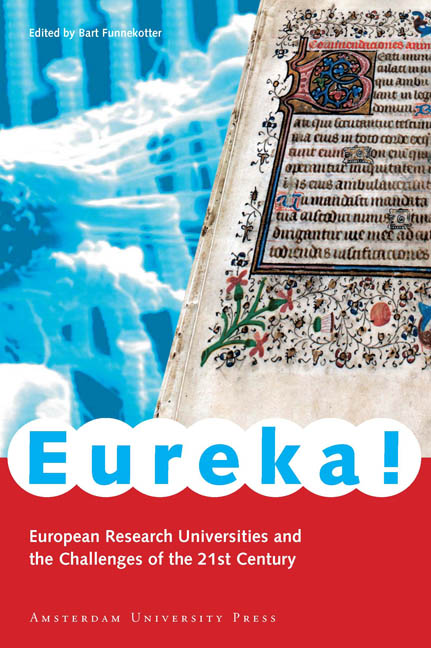Book contents
- Frontmatter
- Contents
- Foreword
- Introduction: Challenges of the Twenty-first Century
- Cambridge: Cambridge University
- Edinburgh: University of Edinburg
- Geneva: Université de Genève
- Heidelberg: Ruprecht-Karls-Universität
- Helsinki: Helsingin Yliopisto
- Leiden: Universiteit Leiden
- Louvain: Katholieke Universiteit Leuven
- Milan: Università Degli Studi Di Milano
- Munich: Ludwig-Maximilians-Universität
- Oxford: Oxford University
- Stockholm: Karolinska Institutet
- Strasbourg: Université Louis Pasteur
Geneva: Université de Genève
Published online by Cambridge University Press: 23 January 2021
- Frontmatter
- Contents
- Foreword
- Introduction: Challenges of the Twenty-first Century
- Cambridge: Cambridge University
- Edinburgh: University of Edinburg
- Geneva: Université de Genève
- Heidelberg: Ruprecht-Karls-Universität
- Helsinki: Helsingin Yliopisto
- Leiden: Universiteit Leiden
- Louvain: Katholieke Universiteit Leuven
- Milan: Università Degli Studi Di Milano
- Munich: Ludwig-Maximilians-Universität
- Oxford: Oxford University
- Stockholm: Karolinska Institutet
- Strasbourg: Université Louis Pasteur
Summary
Université de Genève in facts and figures:
Founded in 1559
14,620 students
5,147 staff
Budget € 428 million
Anyone who has entered Geneva from the direction of the train station will have experienced it: the sudden shock of wide open space after crossing the Mont Blanc Bridge; where the Rhône meets the lake it looks as if a huge blue blanket has been spread out among the mountains. On the other side of the bridge the Jet d’Eau shoots a pillar of water one 140 into the air. The wind carries the foam through the little harbour towards the city, and the tall facades of multinational corporations, banks and hotels tower along the quays.
This is Geneva, home of Rolexes, diplomats and Swiss banks. But a walk up the road towards the old town centre and the cathedral of Saint Pierre reveals a city of parks, squares, monuments and historic buildings. It is the city of Jean-Jacques Rousseau, but even more so the city of Calvin. In the municipal park one can stand eye-to-eye with him in the giant monument de la Réformation, the tribute to the man who turned sixteenth- century Geneva into the Protestants’ own Rome. His statue gazes out over the imposing Uni Bastion, whose classical architecture houses the university library and the literature faculties. And it does so with good reason.
It was Calvin who founded the Académie de Genève in 1559. Initially, theology was the main area of study; law was added later. Paradoxically, the present-day university concentrates almost exclusively on the sciences, with an emphasis on molecular biology, astrophysics and the life sciences. To understand how this shift occurred, we must look back to the period of the Enlightenment when the university became a magnet for leading natural scientists such as physicist Jean Jalabert (1712-1768), a pioneer in research into electricity, astronomer Jacques-André Mallet (1740-1790) and physicist Horace-Bénédict de Saussure, who invented the hygrometer.
Only in 1873, when connections with the Church were broken and the medical faculty was founded, was the Académie conferred the status of university. Ever since, it has continued to embrace new disciplines and to attract ever more staff and students from abroad.
- Type
- Chapter
- Information
- Eureka!European Research Universities and the Challenges of the 21st Century, pp. 39 - 49Publisher: Amsterdam University PressPrint publication year: 2005



